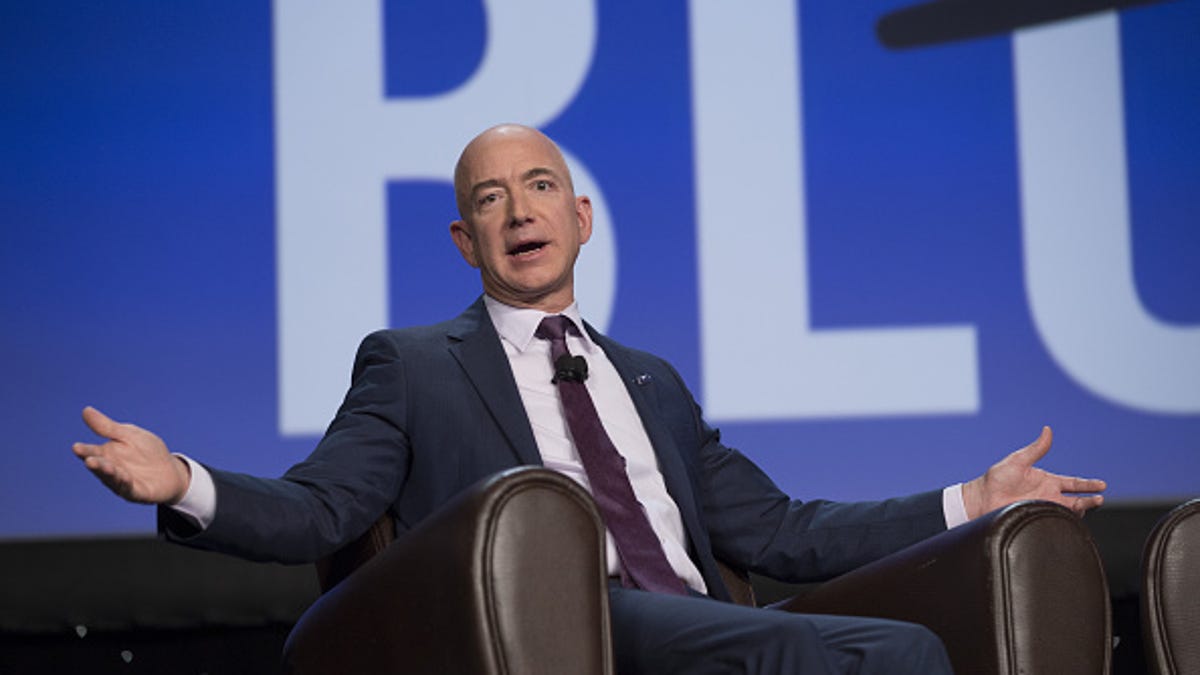Amazon Prime memberships stay strong despite price hike
Amazon finance chief said renewals are "looking really, really good."

Amazon CEO and founder Jeff Bezos.
Amazon raised the price of its Prime memberships in the US by 20 percent, but so far that isn't harming renewals.
That's according to Amazon finance chief Brian Olsavsky, who said on an earnings call with reporters Thursday that Prime renewals are "looking really, really good" despite the price hike. Last week's Prime Day sale also brought in a single-day record of new Prime sign-ups. Amazon has more than 100 million paid Prime members worldwide, with its largest market in the US.
"Prime membership remains strong and we think Prime members really value their memberships," he later added.
Amazon in April said it would raise the annual price of its Prime membership in the US to $119. That change took effect for new members on May 11 and renewals on June 16. With the latest quarter ending on June 30, the impact -- if any -- from the increase was likely limited.
For its second quarter, Amazon said Thursday it hit a third-straight quarterly profit of more than $1 billion, again blowing analysts' estimates out of the water.
Earnings hit $2.5 billion, or $5.07 a share -- a new record for the company -- up from $197 million a year earlier. Analysts were expecting $2.50 a share, according to Yahoo Finance.
Despite the rosy profit number, revenue was way up but narrowly missed estimates. Sales rose 39 percent to $52.9 billion, versus the $53.3 billion analysts predicted. Wall Street seemed to shrug off the sales miss and pushed Amazon's stock up 2 percent after hours.
The earnings report comes as Amazon has edged closer to becoming one of the first US companies in history to hit a market value of $1 trillion. It's march toward that milestone highlights how Amazon has become a leader in cloud computing and the dominant player in US e-commerce, taking in 50 percent of all online sales in the country, according to eMarketer.
The number also points to CEO and founder Jeff Bezos' now staggering wealth; he owns about 16 percent of Amazon, making him the wealthiest person in the world. His personal wealth is $154 billion, more than the gross domestic product of Hungary.
While Amazon and Bezos are enjoying a massive upswing of good fortune, the fate of fellow tech giant Facebook shows how quickly things can change in the tech industry. Facebook on Wednesday reported weak revenue in its latest quarter and warned of continued financial softness, resulting in the social network's shares plummeting 19 percent Thursday.
As is often the case in Amazon's quarterly reports, its cloud-computing unit, Amazon Web Services, powered a big chunk of the profit despite taking in much less revenue than the retail business. AWS profit hit $1.6 billion, up from $916 million.
The North American retail business also posted a healthy jump in earnings, from $436 million $1.8 billion. International retail posted another loss. Amazon's newer advertising operations are also seeing strong growth. The business accounts for most of Amazon's category of "other" businesses, which doubled sales.
Amazon last week dealt with a shaky start to this year's Prime Day sale, with glitches plaguing its website and mobile app. Olsavsky said the troubles were due to heightened demand.
"It was triggered by a larger-than-expected influx of traffic," he said. "We learned a lot and are looking forward to an even better Prime Day next year."
First published at 1:20 p.m. PT.
Updated at 2:40 p.m. PT: Adds comments from Amazon's finance chief.
Cambridge Analytica: Everything you need to know about Facebook's data mining scandal.
Tech Enabled: CNET chronicles tech's role in providing new kinds of accessibility.

